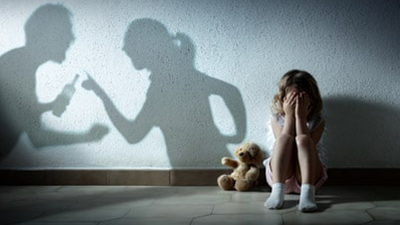Safeguarding e-Bulletin – 14 September 2022
Welcome to the first SSS Learning e-bulletin for the new academic year. I hope you have had some time throughout the summer break to regroup and recharge the batteries following what has been a very challenging two years.
Table of Contents
- What's new at SSS Learning
-
In the news
- Lifelong impact of witnessing domestic violence
- Serious Case Review – Hakeem Hussain.
- Rise in self-generated child sexual abuse content online - an ‘entirely preventable’ trend
- Marriage and Civil Partnership Act 2022
- Mental health training less likely for teachers in schools rated below ‘outstanding’
- Ofsted update inspection guidance
- Molly Russell inquest – Meta and Pinterest chiefs ordered to appear in person
What's new at SSS Learning
As ever, all our course content and the safeguarding audit have been fully updated to meet KCSIE 2022 statutory requirements with additional courses covering the latest updates. You will also have seen from our recent notifications, that we've been busy over the summer updating and improving the functionality of our systems. This includes:
- modularising our courses into more manageable sections;
- new look admin and training dashboards;
- the introduction of Presenter Mode, enabling group training.
In addition, the following were introduced to the admin dashboard:
- our library of policies and protocols (risk assessments coming soon);
- Top Tips video content, providing expert guidance and tips on key areas of practice. We will be regularly adding new topics to this facility throughout the year.
New e-Safety Course coming soon
Currently in development we are producing our new e-Safety course, specifically designed for educational settings with bespoke practical guidance and support tools. This extensive new course is scheduled for release mid-October. We are also revising our Health and Safety course to provide a general overview of best practice course supported by more in-depth modules on specific topics.
Practical case study refreshers
Practical case study refreshers are also planned for all courses within the SSS Learning portfolio- more details to follow in our next bulletin.
Additional Stressors – The Energy Crisis
As this new academic year begins, it is important to be mindful that many families may be experiencing additional stressors due to the impact of the ongoing energy crisis. With more families experiencing hardship, we as professionals must be vigilant and recognise that such stressors may negatively impact on children's wellbeing and safety. Throughout the year we will be keeping you up to date with the latest research and statistics to help guide and support your practice.
On a personal note, I would like to thank you all for your positive feedback and suggestions for improvements and new course content. As you will see from this bulletin, we do welcome this – keep them coming!
All that remains is for me to thank you for continued support and to wish you a great academic year.
Best wishes
Sam
Sam PrestonSafeguarding Director
In the news
Lifelong impact of witnessing domestic violence
The Independent Family Review has highlighted the serious ongoing impact of children who witness domestic violence.
The review, published by Children's Commissioner Dame Rachel De Souza, highlights that children experiencing domestic violence between parents in their early years not only have difficulties in their teenage relationships but are also 30% more likely to exhibit anti-social behaviour by the age of 14 than their peers.
Findings of this first part of the review also describes how the impact of domestic abuse also destabilises a young person's life, particularly due to frequent home relocations for safety, disruption to education and impact on maintaining and forming friendships.
Data shows that between 2020 and 2021, a total of 168,960 children in England were impacted by concerns over domestic abuse and the report suggests that current services fail to demonstrate sufficient consideration of the impact of coercive or controlling family dynamics has on children.
Whilst the report recognises the important role supportive families have in the development of protective factors and helping children to build of healthy relationships, it also highlights that families can also be a source of risk particularly where issues such as parental substance abuse or domestic violence occurs.
Financial pressure was a common concern raised by the families surveyed linked to the cost of living and, with steep increases in food, fuel and energy prices, professionals should be aware of the increased risk children may face in light of these heightened stressors.
The second part of the review, to be published later this year, will focus on ‘family strength’ and the development of a high-level outcomes framework.
Serious Case Review – Hakeem Hussain.
A serious case review has found that seven year old Hakeem Hussain, a severely asthmatic seven-year-old boy who died alone at night, was failed by child protection agencies.
Hakeem died following a severe asthma attack, alone in the early hours in the garden of the house in Birmingham where he was staying with his mother, Laura Heath.
Heath told police that on the night Hakeem died she had smoked three bags of heroin, two before he went to bed at 10.30pm and one afterwards which left her in a drug-induced sleep.
Heath, a heroin addict, was convicted of gross negligence manslaughter at Coventry crown court. The judge, Mr Justice Dove, said Hakeem's death was the result of her ‘catastrophic and deplorable’ parenting. He ordered her to serve two-thirds of her sentence before becoming eligible for parole, stating that that the death had occurred after her life ‘entered a drug-fuelled downward spiral into squalor, chaos and tragedy.’
The serious case review, published by Birmingham's Safeguarding Children Partnership, found that prior to Hakeem's death Heath was ‘challenging and difficult to engage.’ In the months prior to Hakeem's death, her behaviour towards professionals was intimidating and included lying to both social services and his school.
Penny Thompson, the independent chair, of the review stated however that it was ‘horrendous’ that Hakeem's ‘unhappiness and fear of repeated asthma attacks and the marked reduction in his attendance and performance at school, did not trigger more effective intervention.’
As recorded in the report, Hakeem had previously told staff at school when he was aged six that he was ‘5% happy, 100% angry and 1,000% scared.’ It was also reported that he had said: ‘I have not had any dinner, I sometimes have breakfast, sometimes lunch, but not during Saturdays and Sundays.’
In the review findings, Thompson highlighted that Hakeem's school ‘did not escalate their concerns effectively’ and that his GP ‘did not recognise the need to share important information without consent because of the risk of significant harm.’
Whilst the review recognised that the allocated social worker had tried to work positively with Heath, this contact had prioritised other vulnerable family members to the detriment of Hakeem. The review found that ‘the extent of Hakeem's neglect was there to be seen well before the decision to place him on a child protection plan two days before his death.’
During Heath's trial it was revealed that a nurse attending a child protection case conference had warned that the Hakeem ‘could die at the weekend’, two days before he collapsed. It was agreed at the conference that a social worker would speak to Heath on the Monday, by which time Hakeem had died.
Heath told the review that ‘Hakeem should never have been left with me.’
Rise in self-generated child sexual abuse content online – an ‘entirely preventable’ trend
The Internet Watch Foundation (IWF), whose work has helped remove millions of child sexual abuse images and videos from the internet, has reported that just under 20,000 reports of self-generated child sexual abuse content involving seven to ten- year-olds were seen by the organisation in the first six months of this year. This compares with just under 12,000 during the same period previously. The IWF reports that this disturbing global trend has grown rapidly since the initial coronavirus lockdown, with cases involving seven to ten-year-olds having increased by 360% since the first half of 2020.
Whilst the IWF found the fastest increase in self-generated imagery among this age group, the eleven to thirteen age group generates the largest amount of such images reported by the IWF. In the first six months of the year 56,000 images were flagged by the IWF. There has also been an increase (137%) in self-generated images of boys aged between seven and thirteen.
Commenting on the report, IWF Chief Executive Susie Hargreaves described such self-generated abuse as ‘entirely preventable’. Hargreaves stated:
“Child sexual abuse, which is facilitated and captured by technology using an internet connection, does not require the abuser to be physically present, and most often takes place when the child is in their bedroom – a supposedly ‘safe space’ in the family home. Therefore, it should be entirely preventable.
Only when the education of parents, carers and children comes together with efforts by tech companies, the government, police and third sector, can we hope to stem the tide of this criminal imagery.”
Self-generated child sexual abuse images are typically created by grooming, deceiving or extorting children to use computer webcams or smartphones and share online images on a growing number of platforms. Images are taken from image host sites and then distributed through online forums.
Manager of the IWF hotline, Tamsin McNally commented: ‘This is not some alleyway or dark basement. It is in family homes – sometimes you can hear their parents outside the rooms.’
McNally stated that a number of factors could be behind the growth of self-generated abuse images since 2020. ‘It might be due to lockdown and children being at home more and having access to the internet, or it could be that we are uncovering more cases because our techniques for finding this sort of content have improved.’
Measures to limit the spread of illegal content, including child sexual images, are a key feature of the Online Safety Bill. Progress of the much needed Bill has been delayed until the autumn and there are concerns that its current content may be diluted. Speaking at her first Prime Ministers Questions session, newly appointed Prime Minister, Liz Truss said:
“What I want to make sure is we protect the under-18s from harm, but we also make sure free speech is allowed, so there may be some tweaks required.”
Marriage and Civil Partnership Act 2022
The Marriage and Civil Partnership (Minimum Age) Act 2022 will come into force on 27 February 2023. On implementation, the Act will raise the age of marriage and civil partnership in England and Wales from 16 to 18, making it an offence to cause a child under the age of 18 to enter a marriage in any circumstances, without the need to prove that a form of coercion was used. The Ministry of Justice reports this will be a welcome step in helping to protect children from Forced Marriage.
Further information / training on the safeguarding thematic topic of Forced Marriage
Mental health training less likely for teachers in schools rated below ‘outstanding’
A new survey by the Early Intervention Foundation (EIF) has found that less than a third of teachers working at secondary schools with Ofsted ratings lower than ‘outstanding’ have received mental health training.
The survey of around 4,000 teachers revealed that, 28% teaching at schools judged as ‘good’, ‘requires improvement’, or ‘inadequate’ said that they had received training, in comparison with 49% from schools deemed ‘outstanding’.
The survey also states that 82% of respondents said that they had noticed an increase in anxiety and depressive symptoms among their pupils in the past 12 months, with a further 70% agreeing that they had seen reduced motivation and engagement among pupils.
In response to the findings, Early Intervention Foundation Chief Executive, Dr Jo Casebourne commented:
“We know that supporting young people's mental health is a priority for secondary schools, now more than ever. It is essential that teachers are adequately trained to support young people in the development of essential life skills including, for example, emotional regulation, communication skills, coping skills, and conflict resolution skills. The results from our survey highlight the need for high-quality continuing professional development to enhance teachers' competencies. We mustn't see mental health as a tick box exercise – it's an ongoing process.’
Ofsted update inspection guidance
Ofsted has issued an update to the guidance on Inspecting safeguarding in early years, education and skills settings.
In this update the guidance places further emphasises on the importance of filtering and monitoring systems and focus on inclusion of LGBTQ+ children, as reflected in Keeping children safe in education 2022.
The update states that Inspectors should consider whether governing bodies and proprietors ‘do all that they reasonably can to limit children's exposure to any risks from the school or college's IT system.’
In addition, Ofsted have also made clear the view that staff should recognise that lesbian, gay, bisexual and transgender children may be targeted by other children. Staff should take steps to reduce ‘additional barriers’ such students may face in speaking out by providing a safe space or member of staff who they can share their concerns with.
Ofsted has also updated its definition of ‘all staff’ to include tutors, both in person or virtually, and that their details must be recorded on the single central record of staff. Confirmation of appropriate safeguarding checks for tutors, classed as ‘supply staff’, should also be carried out and recorded.
Molly Russell inquest – Meta and Pinterest chiefs ordered to appear in person
Senior executives at Meta and Pinterest have been ordered to appear in person at the inquest of Molly Russell. Although lawyers representing Meta, the owner of Facebook, Instagram and WhatsApp, and Pinterest cited difficulties such as risk of Covid-19 infection and busy work schedules as reasons for their clients not to attend and instead recommending remote attendance, Senior Coroner Andrew Walker ordered that in-person appearances were necessary.
Walker stated that: ‘The questioning of the witnesses will involve the witnesses looking at video footage, referring to documents, and that will be best done in the setting of the court itself’.
Oliver Sanders QC, representing the Russell family, stated: ‘For Meta and Pinterest to say their witnesses cannot attend because it is not convenient is disrespectful to the family and the court.’
14-year-old Molly killed herself in 2017 after viewing an extensive volume of harmful and disturbing content linked to anxiety, depression, self-harm and suicide online in the months before she took her life.
Meta has uncovered 12,576 pieces of Instagram content seen by Molly in the six months before her death, and more than 15,000 engagements on Pinterest which included 3,000 saves.
The inquest, which has been delayed multiple times due to legal and procedural wrangles, including Meta seeking more time to redact evidence to protect users' privacy, opens on 19 September at Barnet coroner's court. Although both US based, Head of health and wellbeing policy for Meta, Elizabeth Lagone, and Jud Hoffman, Head of community operations at Pinterest, Jud Hoffman, are due to give evidence at the inquest.
SSS Learning Safeguarding Director


